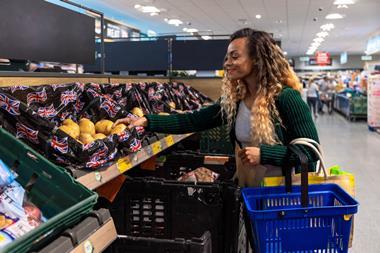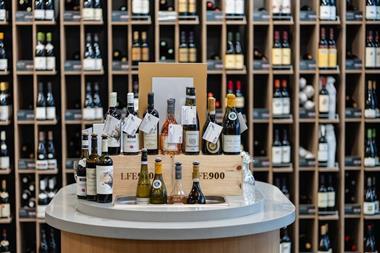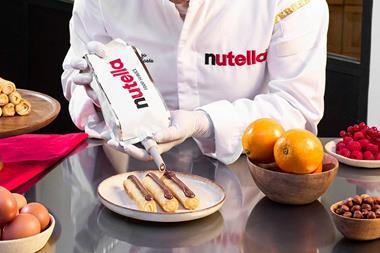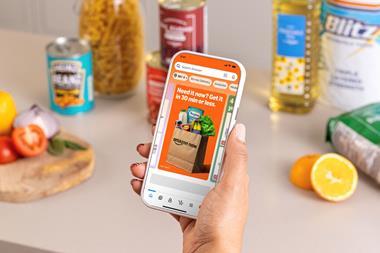
New Brexit charges on imported goods from the EU will “cripple” the food industry, several trade bodies have warned.
The government revealed on Wednesday companies importing products such as sausages, cheese, yoghurt and cut flowers face fees of up to £145 per load from 30 April.
But the industry has warned the levy, known as the common user charge (CUC), will severely impact businesses and hit food prices while reducing choice of goods for UK consumers.
The announcement brought “the worst concerns of SMEs in the UK and EU to fruition”, said Marco Forgione, director general of the Institute of Export & International Trade.
“While larger businesses have the capacity to absorb this cost, it will be small businesses that will feel the full force of these charges.
“Up to an additional £145 per consignment might mean entire profit wiped out completely,” he warned.
Individual medium risk products of animal origin and plants face charges of up to £29 per type of good imported. This will be capped at £145 for mixed consignments.
The government said the fees – which had been proposed last year as part of the new Border Target Operating Model but had not been revealed until now – would help to pay for the border inspection facilities built after the UK left the bloc.
In addition to the common user charge, which will apply to every EU import arriving to the UK via Eurotunnel or Dover, loads that are selected for inspection at the border control post in Sevington face another set of fees from the Port Health Authority.
The Fresh Produce Consortium said the charges would “cripple” those in the fresh produce and flower industry, who imported the majority of their goods from the EU.
The FPC estimated the CUC fee alone would add £200m in costs across the fresh produce supply chain.
CEO Nigel Jenney called the measures a “thinly veiled tax on the industry”.
“While fees are now capped, they remain substantial,” he said, adding it was unfair to apply a singular fee to all consignments when only about 3% were going to be physically inspected, as per Defra calculations.
“This might not seem like much, but with only a small number of consignments actually inspected, the cost per inspection balloons to a ludicrous £5k,” he said.
Jenney deemed the announcement a “self-imposed crisis by the government”.
“The government seems hell-bent on punishing businesses that are the backbone of our economy and our health,” he added.
Common user charge rates
The following rates will be charged for each commodity line in a Common Health Entry Document (CHED):
| Commodity type | Imports | Transits |
| Low-risk products of animal origin (POAO) | £10 | £10 |
|---|---|---|
| Medium-risk POAO | £29 | £10 |
| High-risk POAO | £29 | £10 |
| Low-risk plants and plant products | no common user charge | no common user charge |
| Medium-risk plants and plant products | £29 | no common user charge |
| High-risk plants and plant products | £29 | no common user charge |
The fees would also disproportionately affect businesses relying on groupage as a way to bring goods into the country, the Cold Chain Federation warned.
These were typically businesses that tended to order smaller quantities of different goods and group them together in the same consignment – such as a deli or independent retailer, unlike big supermarkets which would often order a truckload full of the same product type.
“For medium-risk products of animal origin and plants, a groupage load of multiple products will be levied at £29 per product type up to a maximum of cap of £145 – this means a full trailer load of a single product will have the same charge as a single pallet within a groupage load,” the CCF’s deputy CEO, Tom Southall, said.
“Our ‘just in time’ system means retailers tend to place small orders from the same EU supplier at regular intervals as they need it, so lots of small loads on different vehicles instead of a single load,” Southall noted.
“This type of model will become more expensive and may require a restructure.”
Forgione agreed businesses “might look to change the way that they import their goods, perhaps buying from a distributor once the goods are already imported”.
“This would result in reducing the frequency of orders, increasing the price for the consumer and ultimately limiting the variety of products available in UK shops and restaurants,” he said.
Southall added the result of more red tape and cost was “ultimately higher UK food prices and less product choice”.
“The big question is to what extent prices might increases and how much contraction there is in product choice.”
The additional requirements and costs were also deterring some EU exporters from trading with the UK, according to the industry figures.
“We have seen a steady decline of UK SMEs trading with the EU over the past few years due to bureaucratic constraints, we now might begin to observe a decline of EU businesses trading into the UK, simply because they have been priced out,” Forgione said.
Could new Brexit border controls spell the death of UK delis?
While ministers have delayed implementing the new Brexit border strategy five times over the past three years – partly because of costs to businesses and potential supply chain disruptions – physical checks on EU goods will officially go live at the end of April.
Other costly requirements including export health certificates for medium and high-risk goods such as meat and dairy have already been in place since this January.
The government said the CUC was meant to “recover the costs of operating our world-class border facilities where essential biosecurity checks will protect our food supply, farmers and environment against costly disease outbreaks entering the UK through the Short Straits”.
A spokesperson said: “The charges follow extensive consultation with industry and a cap has been set specifically to help smaller businesses. We are committed to supporting businesses of all sizes and across all sectors as they adapt to new border checks and maintaining the smooth flow of imported goods.”



















No comments yet